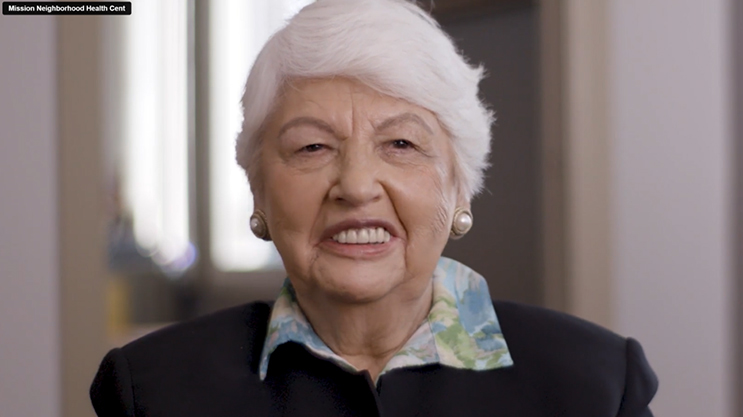July 27, 2016
“All About Asthma”: MNHC and Breathe California Partner to Help Kids Breathe Easier
 In May 2016, Mission Neighborhood Health Center (MNHC) launched All About Asthma – a program in partnership with Breathe California Golden Gate with funding from Kaiser Permanente – San Francisco Community Benefit Program and in collaboration with the San Francisco Health Plan and the Skyline College Respiratory Therapy Program.
In May 2016, Mission Neighborhood Health Center (MNHC) launched All About Asthma – a program in partnership with Breathe California Golden Gate with funding from Kaiser Permanente – San Francisco Community Benefit Program and in collaboration with the San Francisco Health Plan and the Skyline College Respiratory Therapy Program.
Childhood asthma continues to be a chronic condition that has significant repercussions for children and their families. It is the number one cause of school absenteeism and costs parents and caregivers millions of dollars each year in lost wages while they take time off to care for their sick children (CDPH, 2014). Asthma rates in the Mission District of San Francisco and neighboring districts are among the highest in San Francisco (SFHIP, 2015) with many low-income families living in conditions with poor indoor and outdoor air quality, prompting frequent trips to the emergency department and/or to a community clinic. Approximately 15% of MNHC’s pediatric population has asthma.
All About Asthma hopes to address these issues and more. The goal of the program is to help to reduce the number of asthma emergencies and asthma episodes reported by program participants by educating them so they can better manage their health.
 Breathe California’s certified asthma educator, MariaElena Alioto, AE-C, meets with pediatric asthma patients and their families one-on-one to educate them, answer any questions and offer asthma support. Curriculum components include lung physiology, asthma basics, asthma warning signs, asthma emergency signs, asthma medications, medication forms, nutrition and exercise, spacers, nebulizers, peak flow meters, asthma action plans, asthma triggers, and communication between parents and health care providers. She also assists families in completing (Asthma Action Plan) school forms. Sessions are offered in English and Spanish.
Breathe California’s certified asthma educator, MariaElena Alioto, AE-C, meets with pediatric asthma patients and their families one-on-one to educate them, answer any questions and offer asthma support. Curriculum components include lung physiology, asthma basics, asthma warning signs, asthma emergency signs, asthma medications, medication forms, nutrition and exercise, spacers, nebulizers, peak flow meters, asthma action plans, asthma triggers, and communication between parents and health care providers. She also assists families in completing (Asthma Action Plan) school forms. Sessions are offered in English and Spanish.
“I am thrilled to be part of this inaugural program at MNHC,” said Ms. Alioto. “The program design empowers patients and helps them better manage their health with family support.”
“Asthma education is an important component of primary care,” said Jaime Ruiz, Chief of Pediatrics at MNHC. “With the addition of this pilot program, we can augment the education we provide families in our clinical visits to make a bigger impact on our kids’ lives.”
Funding is set to support 120 children per year; to date 50 have been already enrolled in the program. Ultimately, MNHC would like to incorporate asthma education into its permanent services, similar to what they currently offer for patients with diabetes with their on-staff Certified Diabetes Educator.



